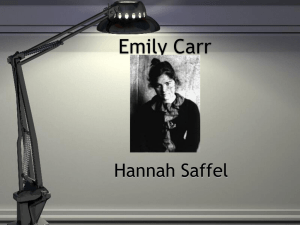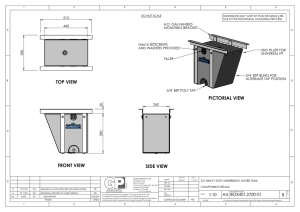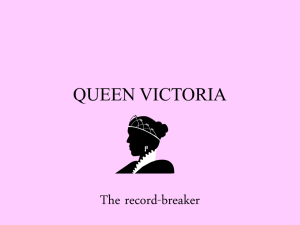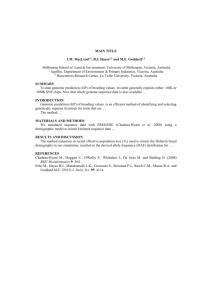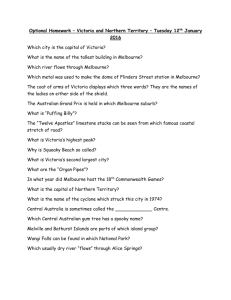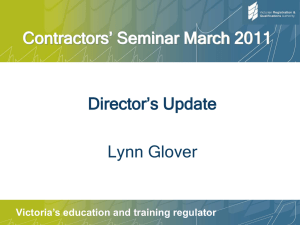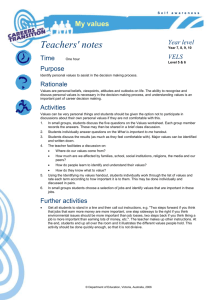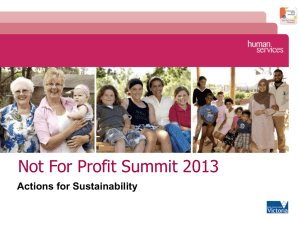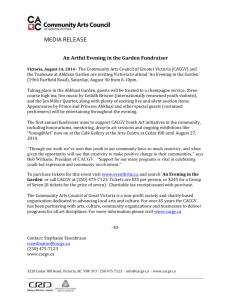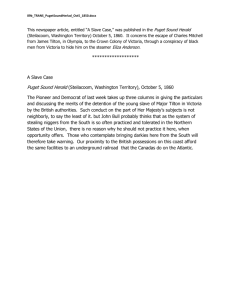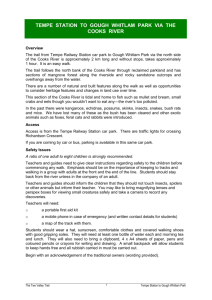From-Classroom-to-Battlefield-review
advertisement
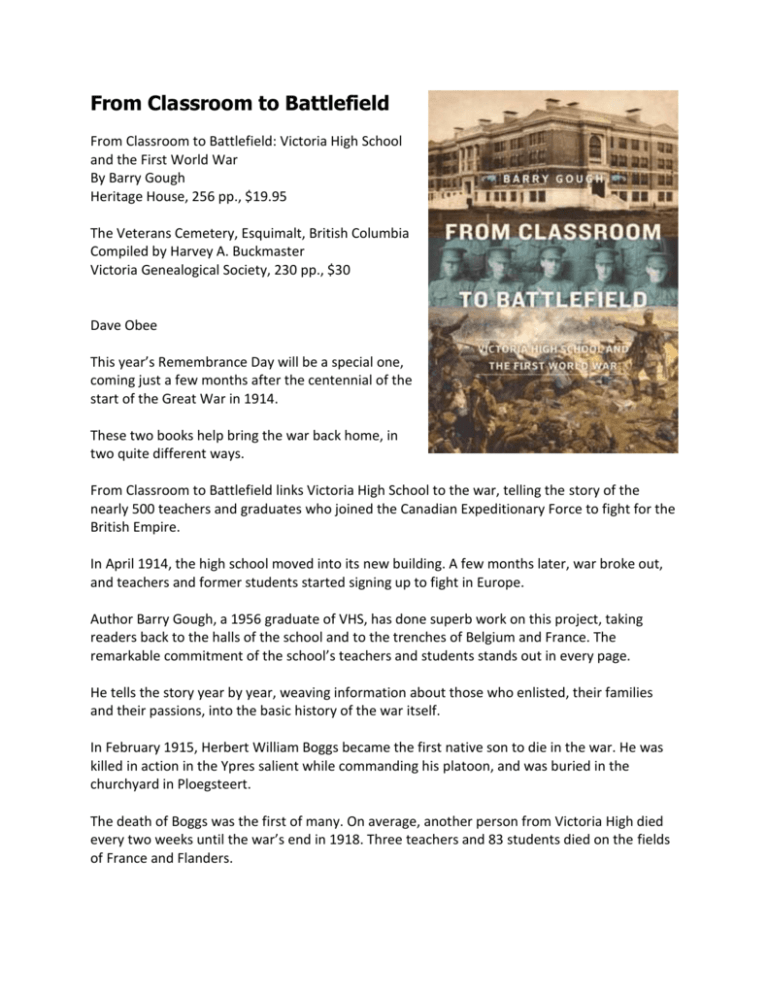
From Classroom to Battlefield From Classroom to Battlefield: Victoria High School and the First World War By Barry Gough Heritage House, 256 pp., $19.95 The Veterans Cemetery, Esquimalt, British Columbia Compiled by Harvey A. Buckmaster Victoria Genealogical Society, 230 pp., $30 Dave Obee This year’s Remembrance Day will be a special one, coming just a few months after the centennial of the start of the Great War in 1914. These two books help bring the war back home, in two quite different ways. From Classroom to Battlefield links Victoria High School to the war, telling the story of the nearly 500 teachers and graduates who joined the Canadian Expeditionary Force to fight for the British Empire. In April 1914, the high school moved into its new building. A few months later, war broke out, and teachers and former students started signing up to fight in Europe. Author Barry Gough, a 1956 graduate of VHS, has done superb work on this project, taking readers back to the halls of the school and to the trenches of Belgium and France. The remarkable commitment of the school’s teachers and students stands out in every page. He tells the story year by year, weaving information about those who enlisted, their families and their passions, into the basic history of the war itself. In February 1915, Herbert William Boggs became the first native son to die in the war. He was killed in action in the Ypres salient while commanding his platoon, and was buried in the churchyard in Ploegsteert. The death of Boggs was the first of many. On average, another person from Victoria High died every two weeks until the war’s end in 1918. Three teachers and 83 students died on the fields of France and Flanders. From Classroom to Battlefield is fascinating. Tying the war to Victoria makes it seem more real, and even more understandable. Be warned that this can be a tough book to read — and not because of Gough’s writing, but because of the subject matter. There were so many lives lost, so many families shattered, and so much potential gone to waste. The war’s impact is clear, and inescapable, and was felt for decades afterwards in ways that extended far from the battlefields. As Gough writes, the war “gave to Victoria a host of grieving mothers, aunts, and sisters. It created an army of spinsters.” This is a powerful, well-written book. In simple terms, if you want to read a single book about the Great War, this is the one to read. Royalties from Gough’s book will go the high school’s alumni association to be used in scholarships or other activities. Two launch events have been planned. The first will be at Munro’s Books at 1 p.m. Tuesday, Remembrance Day, and the second will be at Bolen’s Books at 7 p.m. on Tuesday, Nov. 18. The Veterans Cemetery, Esquimalt, British Columbia is a revised and expanded edition of a book first published in 2000. It contains the full inscriptions for the 2,888 burial markers in the cemetery, along with a plot map to make it easy to find interments. The cemetery, which is also known as God’s Acre, has been in use since 1868. It was designated a National Historic Site in 2006. Proceeds from the sale of this book will go to the Victoria Genealogical Society, which promotes family history research. The reviewer is the editor-in-chief of the Times Colonist.

